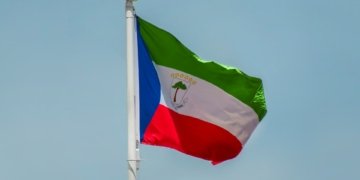ABUJA – Nigeria’s efforts to reform its domestic energy market gained momentum this week, as the Federal Executive Council’s Steering Committee met in Abuja to review progress on the Crude-for-Naira initiative.
The Crude-for-Naira initiative is a policy framework designed to enable domestic crude oil sales and refined petroleum products to be transacted in Nigeria’s local currency, the naira, instead of using US dollars.
This shift aims to reduce foreign exchange pressures, strengthen the country’s currency, and build local refining capacity.
The meeting, held Wednesday and chaired by Finance Minister Wale Edun, brought together high-level stakeholders from across government and industry.
Key participants included the Nigerian National Petroleum Corporation, Dangote and National Petroleum Corporation refineries, the Central Bank, and key regulators, including the Nigerian Upstream Petroleum Regulatory Commission (NUPRC) and the Nigerian Midstream and Downstream Petroleum Regulatory Authority.
At the heart of the discussion was a coordinated push to expand naira-based transactions for domestically produced energy products.
The framework also seeks to improve the liquidity of the local currency market and build a more self-sufficient industrial base by limiting the demand for dollars in energy transactions.
While challenges remain, progress is being made.
Since early 2024, pilot agreements under the initiative have led to a marginal but consistent increase in local crude transactions conducted in naira.
Industry data indicates that approximately 8 % of domestic crude allocations are now processed through local refineries using naira-based settlements, according to figures obtained from the NUPRC.
The government projects this figure to grow to 30 % by the end of 2026.
The strategy complements broader fiscal and monetary reforms designed to reduce the economy’s dependence on imported refined products, which currently account for over 80 % of national consumption.
The engagement of Dangote and Nigerian National Petroleum Corporation refineries in the program is expected to improve domestic refining output, reduce logistics costs, and ease supply bottlenecks.
The meeting highlighted the role of the One Stop Shop coordination model, which brings together multiple agencies to fast-track decisions around licensing, pricing, and logistics.
Officials describe the structure as a critical enabler for simplifying operations and reducing delays that have historically hindered downstream growth.
While the Crude-for-Naira plan is evolving, the commitment to align fiscal stability with energy security reflects a strategic policy shift.
For households and businesses alike, a stable naira backed by strong local production could mark a turning point in Nigeria’s energy economy.




























